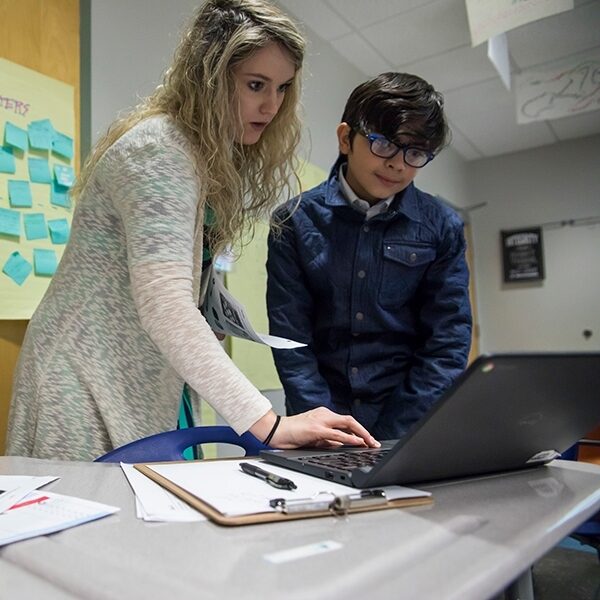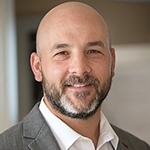
In total, there are 98 Launch Districts and 23 Ambassador Districts in the #GoOpen initiative, a nationwide Office of Ed Tech campaign to support school districts adopting and implementing Open Educational Resources (OER).
A Launch District makes the following commitments:
- Identifying a team of leaders who can apply best practices for their implementation of OER
- Replacing at least one proprietary textbook with OER
- Documenting and sharing their OER implementation process and experience with others
An Ambassador district commits to:
- Mentoring one or more Launch Districts as it designs and implements its OER strategy
- Evolving its own district plans for continued scalability and sustainability
- Openly licensing and sharing resources, information, and insights about the district’s processes
Taken together, these 121 coast-to-coast districts represent thousands of students benefiting from school systems positioned to adapt, curate, and modify instructional materials for a more meaningful learning experience. Successful implementation of OER has the power to increase equity, keep content responsive and rigorous, engage teachers in the important work of building curricula, and reallocate resources to capacity-building activities in a district. Below are some stories of success from the ground level of implementation:
Examples of Success
- Reframing OER Adoption as a Comprehensive, Strategic and Systematic Approach: The Carlsbad Unified School District in California realized that shifting away from traditional textbooks to a more adaptive and responsive system of foundational instructional material was not a simple process. The district acknowledged the complexities involved in this type of change management and went about this evolution in a thoughtful way that considered stakeholder groups, appropriate resourcing, and the patience required for long-term sustainable change.
- Reallocating Resources and Saving Money: Broken Arrow Public Schools in Oklahoma initiated their transition away from traditional resources to OER because of the constraints of school budgets. The transition to OER for Broken Arrow was forced out of necessity, when the district’s budget shortfall required it to consider innovative options that would keep learning expectations high while saving the district money. While budgets pushed Broken Arrow in this direction, the move has also increased teacher enthusiasm and student engagement around new lessons created through OER.
- Creating Rigorous Learning Experiences for Students: The Fox Chapel Area School District in Pennsylvania set out an ambitious plan to become one of the top performing school systems in the country. OER adoption for this district meant that teachers could curate a whole catalog of aligned resources and customize instruction to student needs and interests. While this has led to increased achievement in the district, leaders were also proud of the fact that the movement has been sponsored and supported from the classroom level, giving teachers the power to make important curricular decisions for students.
- Engaging and Developing Teachers: The Puyallup School District in the state of Washington has been a leader in the adoption and implementation of OER. As an Ambassador district, it has supported other districts on the path to OER implementation in addition to taking on its own rigorous work around OER. Puyallup experienced a reignition in meaningful teacher development and empowerment through “going open.” Because teachers have become sophisticated curators of instructional materials, they’ve had to spend time examining state standards, assessment items, and instructional activities that align to their goals. Teachers have become increasingly aware of the rigor that state standards are asking for and have cultivated a deep sense of clarity around what and how students should master material. The district has even been able to create new courses that pique student interest because of their investment in OER.
Common Threads Among Districts
There are many more stories of implementation successes, challenges, strategies, and wisdom when it comes to districts adopting OER as a pedagogical approach to teaching and learning. However, TLA has found some common threads connecting districts:
- Schools and systems are seeing OER as a lever for deeply engaging, collaborative professional learning
- Teachers report “open” resources as key to providing differentiated and personalized approaches (and often engage in modifying and unbundling materials to create these experiences for students)
- Schools and systems are leveraging learning management systems (LMS) to deliver on the promise of personalized learning
- Increased teacher autonomy reportedly leads to higher engagement in learning for students, as well as increased engagement in work for teachers
- OER adoption supports the reallocation of resources to other critical areas including teacher capacity-building and material curation/creation
- School systems are “giving back” by sharing their curated and locally-developed materials and assessments to the broader ecosystem
To learn more about how OER is changing teaching and learning, visit the Open Education Week website and check the TLA Blog throughout the week as we continue to celebrate Open Education Week with posts about useful resources for OER vision-crafting, adoption, and implementation.
Next post: A Vision of Success Is Key to OER Adoption: Resources to Support Leaders

